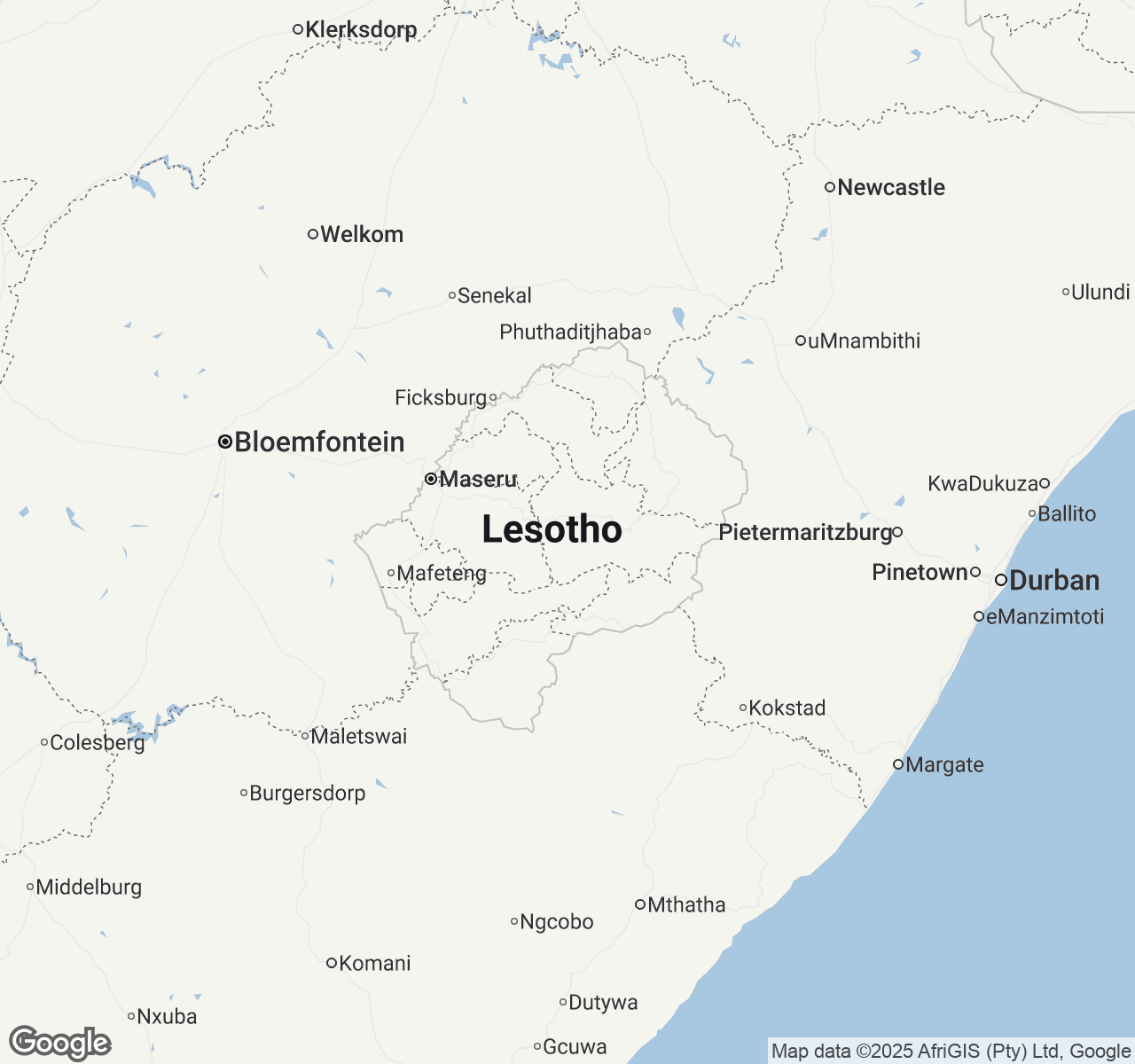
Things to Do in Lesotho
Discover the best of Lesotho
Plan Your Trip
Essential guides for timing and budgeting
Top Things to Do in Lesotho
Discover the best activities and experiences. Book now with our trusted partners and enjoy hassle-free adventures.
Explore Lesotho
Afriski Mountain Resort
City
Bokong Nature Reserve
City
Katse Dam
City
Liphofung Cave
City
Malealea
City
Maletsunyane Falls
City
Maseru
City
Mohale Dam
City
Morija
City
Sani Pass
City
Sehlabathebe National Park
City
Teyateyaneng
City
Thaba Bosiu
City
Tsehlanyane National Park
City
Your Guide to Lesotho
About Lesotho
Nestled entirely within South Africa like a precious jewel in a crown, Lesotho rises from the earth as the world's highest low point, where every breath carries the crisp promise of mountain air. This 'Kingdom in the Sky' unfolds across dramatic highlands where Basotho herders wrapped in vibrant blankets guide their livestock along ancient paths, their silhouettes dancing against endless horizons. Here, crystalline streams cascade down rugged escarpments, feeding valleys where traditional rondavels dot the landscape like scattered seeds. The spirit of ubuntu flows through every village, where visitors are welcomed not as strangers but as temporary family members. Lesotho's soul lies in its untouched wilderness—from the mystical Drakensberg peaks to the remote Sani Pass—where adventure seekers discover a land unmarked by mass tourism. This is Africa's Switzerland, where pony trekking replaces highways, where the night sky blazes with unfiltered starlight, and where every sunrise illuminates a kingdom that has preserved its authentic heartbeat against the rushing tide of modernity.
Travel Tips
Transportation: Rent a 4WD vehicle with high clearance; many roads are unpaved and steep. Book pony trekking through local operators for remote areas. The dramatic Sani Pass requires experienced drivers or guided tours—avoid attempting it in regular vehicles.
Money: The Lesotho loti (LSL) equals the South African rand, and both currencies are accepted everywhere. Bring cash as ATMs are scarce outside Maseru. Mobile money transfers via EcoCash are increasingly common in villages.
Cultural Respect: Always greet elders first with 'Lumela' (hello). Ask permission before photographing people, especially in traditional dress. Respect the significance of Basotho blankets—each pattern tells a story. Remove shoes when entering homes.
Food Safety: Stick to bottled water and avoid tap water, even in hotels. Try traditional papa (maize porridge) and morogo (wild spinach) at established restaurants. Street food is generally safe in Maseru but be cautious in remote areas.
When to Visit
Lesotho's dramatic seasons create distinct travel experiences across its highland terrain. Summer (October-March) brings warm days (20-25°C) and afternoon thunderstorms, with November-February receiving 85% of annual rainfall (600-800mm). This period offers lush green landscapes and wildflower blooms but challenging road conditions. Winter (April-September) delivers crisp, dry weather with temperatures ranging from -5°C to 15°C, occasional snow dusting the peaks, and crystal-clear skies perfect for photography and trekking. Peak season (May-September) sees accommodation prices increase 30-40%, while shoulder seasons (April, October) offer 20% savings with excellent weather. Summer months (December-February) are considered off-peak despite warm weather due to unpredictable rains, offering 25-35% discounts. Key festivals include Morija Arts Festival (September 29-October 1), celebrating Basotho culture with traditional music and crafts, and the Roof of Africa rally (November), attracting adventure enthusiasts. Independence Day (October 4) features colorful celebrations nationwide. Winter suits hikers, photographers, and cultural enthusiasts seeking clear mountain vistas and vibrant traditional blanket displays. Summer appeals to botanists, birdwatchers, and those prioritizing budget savings over weather predictability. Avoid December-January for serious trekking due to lightning risks and muddy trails.

Lesotho location map